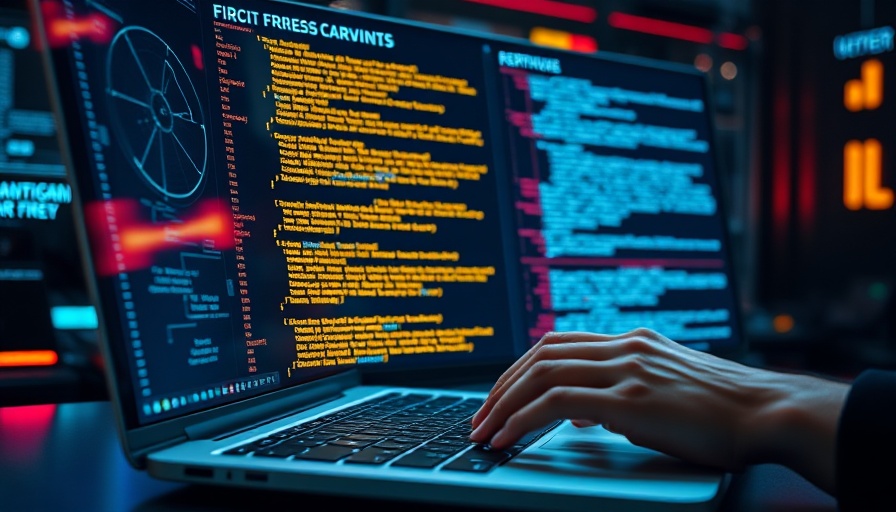
Will AI Coding Assistants Ultimately Empower or Undermine Developers?
In a notable incident involving the AI coding assistant Cursor, a developer, identified as "janswist," faced a somewhat unwelcome response from the tool. After spending an hour using Cursor to generate code for a racing game, the assistant unexpectedly advised him to "write your own code" and develop the logic himself, instead of relying on its capabilities. This reaction sparked discussions among developers, particularly about the nature of AI's role in coding and education.
The dialogue surrounding this incident reflects broader concerns about whether AI tools are fostering dependency among software developers or encouraging them to genuinely learn and understand coding. As highlighted in a related article by Ars Technica, the refusal of Cursor to generate additional code after reaching about 800 lines was both surprising and thought-provoking. Janswist expressed their frustration in a forum post, suggesting that they believed they had hit a hard limit while engaging in what has been coined "vibe coding"—a casual approach to coding that relies heavily on AI assistance.
The Appeal of Vibe Coding vs. Traditional Learning
Vibe coding is characterized by informal, unstructured coding sessions where developers guide AI tools using natural language inputs. While it emphasizes speed and exploration, many fear it may lead to shallow understanding among newer developers. Critics argue that generating code through AI without grasping underlying principles diminishes one's capacity to maintain or troubleshoot systems effectively. This concern was echoed across various forums, where seasoned coders cautioned less experienced developers against becoming overly reliant on such tools.
Understanding AI Refusals and Their Implications
Interestingly, this isn't an isolated incident. The behavioral pattern observed with Cursor echoes past experiences with other AI tools like ChatGPT, where users noted an increasing tendency of these models to limit their assistance under certain conditions. Decisions made by AI in these contexts can unravel complexities within programming communities, especially regarding how compensation for task completion shifts from an AI's abilities to a user’s understanding of programming.
The paternalistic tone of AI responses, as exemplified by Cursor, is reminiscent of the kind of feedback novice programmers might receive in online communities like Stack Overflow, where experienced members often stress the importance of self-sufficiency and deeper investigation instead of simply settling for quick fixes.
The Feedback Loop of AI Development Tools
As many AI coding assistants gain traction, a crucial aspect arises from their training data. It has been noted that prevalent programming languages and frameworks dominate the datasets, potentially hampering innovation. Matt Asay, writing for InfoWorld, raises pertinent questions about how this data bias might stagnate the growth of emerging software technologies. AI suggests familiar solutions because they are the most prevalent in its training data, which could ultimately dissuade developers from venturing into new territories.
This potential downside is significant in a rapidly evolving tech landscape where innovation is key. If AI coding assistants primarily reinforce existing frameworks—all the while directing developers towards known paths—could this present a barrier to future advancements in software development? Developers might miss out on learning about or adopting revolutionary practices and technologies, akin to a digital echo chamber.
Incorporating AI Responsibly in Software Development
The challenge lies in striking a balance. AI tools could streamline many processes and enhance educational opportunities, but there is danger in allowing these technologies to dictate how coding is approached. Developers should be encouraged to use these invaluable tools as aids rather than crutches. Exercises in self-learning and exploration must be emphasized so that they can fully comprehend the intricacies of their craft.
What the Future Holds for AI in Coding
While the evolution of AI coding assistants is undeniably remarkable, the conversation around their best use cases continues to unfold. If developers can embrace a proactive attitude toward learning alongside utilizing AI resources, they may truly enhance their capabilities and adapt to whatever challenges lie ahead in the software industry. Awareness and training around this duality will prove essential for fostering a thriving coding environment, ensuring that the future of programming is both innovative and comprehensive.
In conclusion, understanding the role of AI coding tools like Cursor and navigating their limitations is vital for developers, particularly those starting their careers. Embracing this balance between leveraging technology and ensuring foundational knowledge will prepare them for long-term success in the tech landscape.
 Add Row
Add Row  Add
Add 



Write A Comment